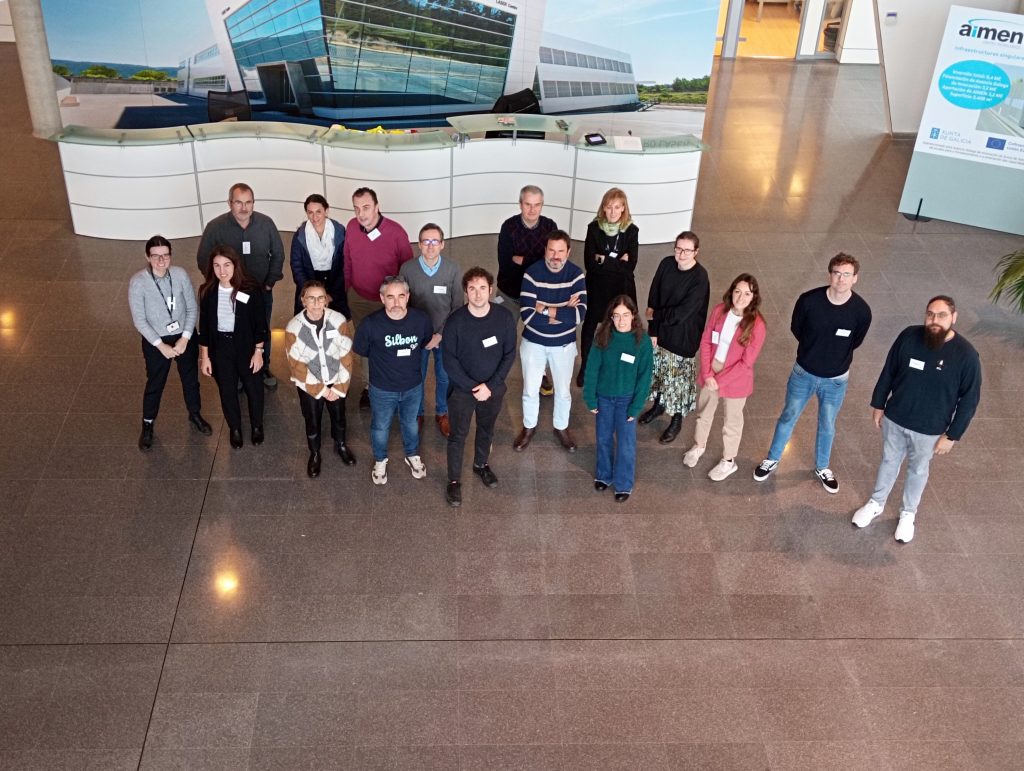
CASANDRA, a project leading the shift toward smart factories with the involvement of CITIC from the University of A Coruña
- Its goal is to modernize and digitalize the manufacturing of large components, creating smarter, more connected, and autonomous production centers capable of adapting in real time to any change or unforeseen event.
Europe is a leader in the manufacturing of complex, large-scale industrial components—and Spain is no exception. The Spanish metal-mechanical sector has grown by more than 8% in recent years. This is due to the high quality of its products, their customization, efficiency, and services. However, increasing demands in regulations and quality are pushing current technologies to their limits.
It is in this context that CASANDRA was born—an ambitious project focused on the digitalization and modernization of industrial manufacturing, with the participation of CITIC from the University of A Coruña, contributing its expertise in artificial intelligence, data science, high-performance computing, and intelligent networks. The project seeks to transform factories into smarter, more connected, and autonomous environments capable of adapting in real time to changes or unexpected events. This technological boost is key to maintaining the competitiveness of the Spanish metal-mechanical sector, which has grown by more than 8% in recent years thanks to the quality, customization, and efficiency of its products.
How is it going to achieve this?
- Full digitalization of the process: The aim is to follow the “digital thread” of each component, meaning a complete record from design to final delivery, which facilitates traceability and improves quality.
- Human-centered tools: Technologies such as collaborative robots, augmented and virtual reality, and exoskeletons will be developed to assist workers in their tasks, making their work easier, safer, and more efficient.
- Self-adapting factories: Through the use of digital twins (virtual replicas of parts and processes), artificial intelligence, and real-time data analysis, factories will be able to automatically adjust their processes to enhance quality and reduce errors or waste.
- New ways of using artificial intelligence: CASANDRA will implement advanced technologies such as federated learning, explainable AI, and edge computing to enable faster, more efficient, and more sustainable decision-making.
- Real-world demonstrations: This entire approach will be tested in key sectors such as energy and shipbuilding, showing how it improves efficiency, control, and quality in manufacturing.
Who is involved?
The project is formed by a group of companies and technology institutions. These include DGH, specialized in industrial automation and robotics; IDESA, a manufacturer of large equipment for the energy sector; and NODOSA Shipyard, a national and international reference in shipbuilding and repair.
They are joined by ARTSOFT, a developer of augmented and virtual reality solutions for industry; TRIMEK, an expert in dimensional metrology; GOGOA, a pioneer in exoskeletons applied to multiple sectors; and NVISION, which combines IoT, artificial intelligence, and data analytics to create monitoring and decision-making tools.
The project also includes leading research centers such as AIMEN, known for its work in advanced materials, digitalization, and sustainability; the Institute of Robotics and Industrial Informatics (IRI), a leader in robotics and computer vision; CDEI-UPC, focused on mobile robotics and industrial design; CITIC from the University of A Coruña, a benchmark in artificial intelligence, cybersecurity, and data science; and INNOVALIA, a Basque technological association with strong international outreach.
The main objective of this initiative is to transform today’s factories into intelligent, more sustainable, and efficient environments through the application of emerging technologies such as artificial intelligence, robotics, sensors, and cyber-physical systems. This alliance between industry and science aims to position Europe at the forefront of global technological innovation.
This project is funded by the State Research Agency (AEI) and subsidized by the Centre for the Development of Industrial Technology (CDTI).





